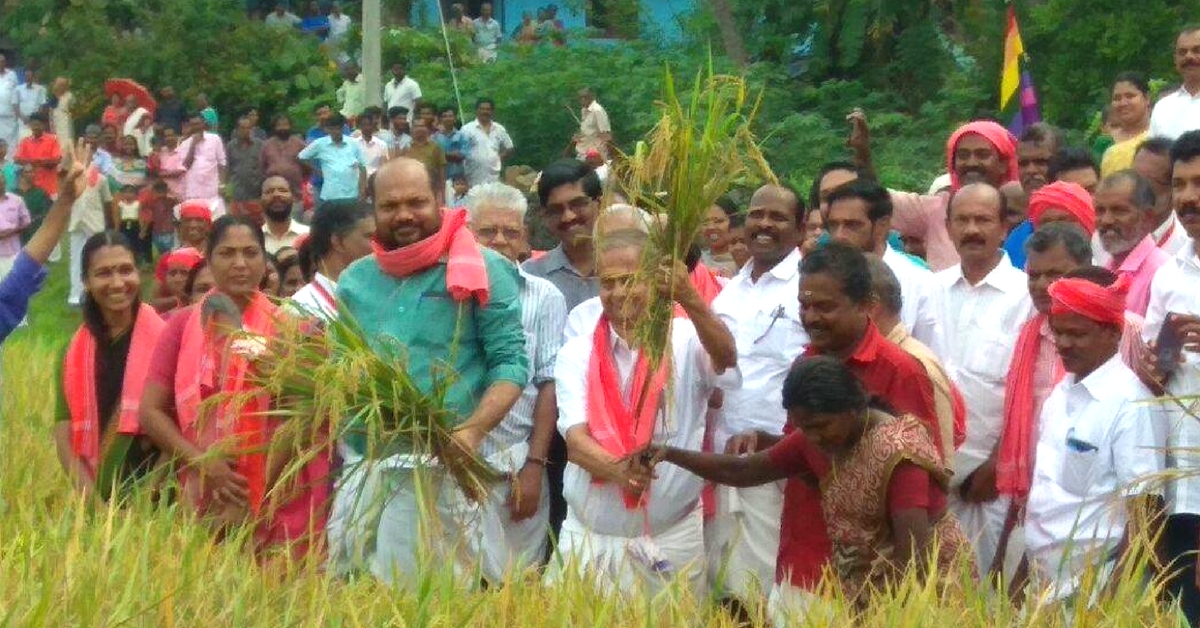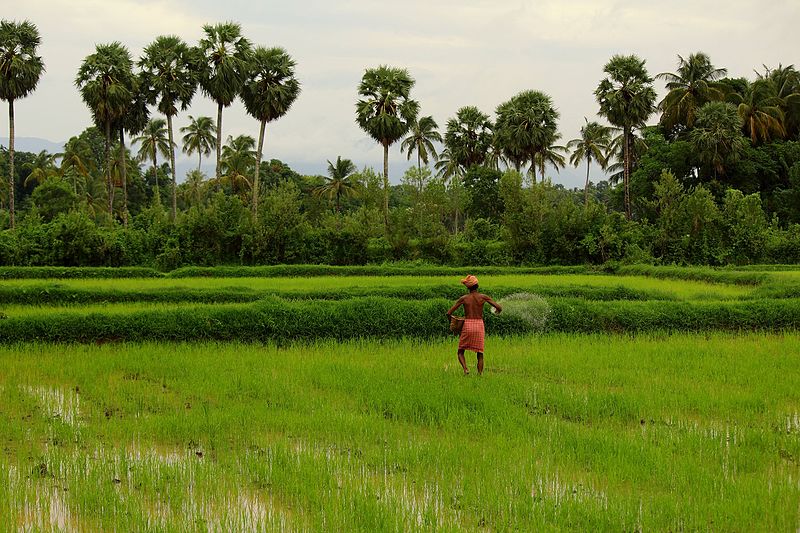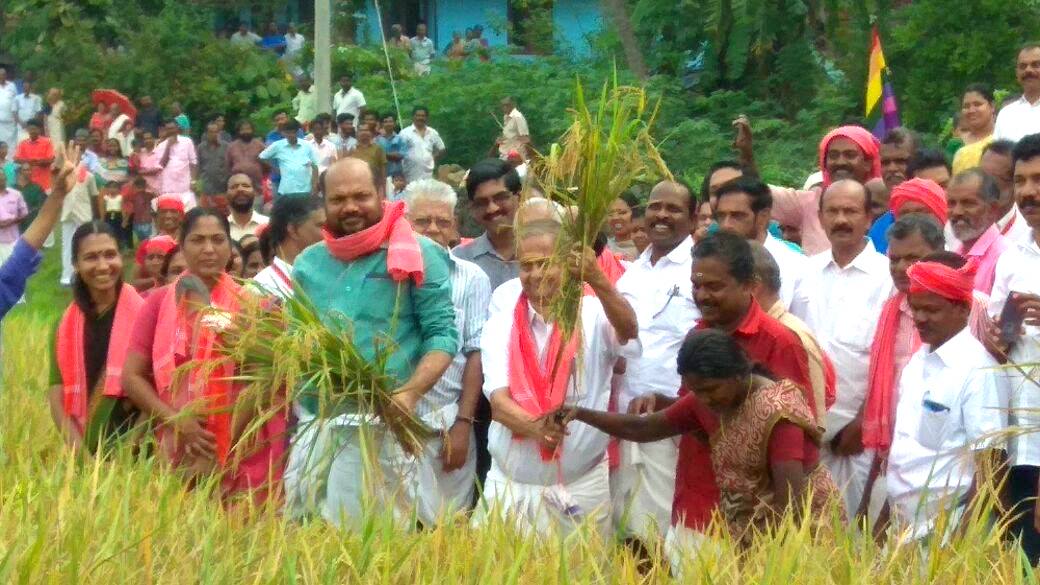How a Simple Bank Converted an Entire Kerala Village into Organic Farmers!
With the active involvement of about 800 people in different farming activities for the past four years, about 25 unproductive fields in the village are now witnessing different types of greens sprouting from the ground.

Who wouldn’t want to consume vegetables and fruits that have been grown and harvested organically?
At a time when the scare of pesticide-affected and artificially ripened produce is circulating across India, more and more people are trying their hand at organic farming—in both rural and urban spaces.
In that matter, Kerala has been at the forefront of promoting the perks and benefits of organic farming.
From government schemes to community programmes, one could say that the state and its citizens are consciously becoming part of a different type of green revolution—something that other states in India could try and emulate.
A fantastic example of this movement can be seen in the village of Parakkadavu situated on the banks of Chalakkudy river in Ernakulam district where the residents unanimously invest their time in organic farming and are harvesting rich fruits of their labour.

With the active involvement of about 800 people in different farming activities for the past four years, about 25 unproductive fields in the village are now witnessing different types of greens sprouting from the ground.
Incredibly, the driving force behind this movement is a local bank in Parakkadavu that went the extra mile to motivate people in the region to take up organic farming methods, four years ago.
Through an organic farming programme, the Parakkadavu Service Co-operative Bank helped sow the seeds of organic farming in the minds of the people with the primary goal of helping them achieve self-sufficiency in producing unadulterated vegetables, paddy, fish, meat, eggs and milk.
Besides attractive loan schemes, subsidies and Kisan Credit Cards, the bank has also been supplying organic pesticides, necessary seeds and saplings for free to the people and is also equipped with a manure depot which provides organic manure.
You may also like: Kerala Agri University Releases a ‘Package of Practices’ to Simplify & Standardise Organic Farming
Besides the knowledge that the soil was inherently fertile, what primarily enabled the bank officers in garnering the focus of the villagers’ towards the prospects of organic farming, was the presence of the river. This meant that the villagers would never run out of water to meet their irrigational requirements.
One of the first initiatives that the bank authorities steered was the supply of grow-bags, with the aim of promoting terrace farming in the village. This ended up becoming such a success that soon, people banded up to form organic farming groups in Parakkadavu.
The movement reached its apex when these groups, now strengthened in numbers, teamed up to move on from terraces and invest their green thumbs to resuscitate barren lands and fields across their village.
Today, the programme has scaled up to a big agricultural network with over 48 farming groups from 800 families in Parakkadavu, out of which there are a minimum of five to ten members in each group.

“It’s more like an organic revolution, we would say,” said the bank officials to The New Indian Express.
Having started with different vegetables like banana, corn and paddy crops, these groups have now extended to ventures like chicken and duck breeding, fish farming, polyhouse farming and floriculture.
In their fourth year, the achievements of Parakkadavu villagers include the launching of paddy cultivation at a barren field in Kurumassery that had been left unused for 25 years, bumper vegetable harvest from nearly 12 acres of land at Odiyappadam and fish farming at Poovathussery. The harvest is sold to the people in the village itself.
“Through the efforts of the bank, we were able to not only provide a source of revenue to the villagers but also develop an organic farming culture with the motto ‘Poison free vegetables for the next generation’,” MK Prakashan, the president of the bank, added.
(Edited by Gayatri Mishra)
Like this story? Or have something to share?
Write to us: [email protected]
Connect with us on Facebook and Twitter.
NEW: Click here to get positive news on WhatsApp!
If you found our stories insightful, informative, or even just enjoyable, we invite you to consider making a voluntary payment to support the work we do at The Better India. Your contribution helps us continue producing quality content that educates, inspires, and drives positive change.
Choose one of the payment options below for your contribution-
By paying for the stories you value, you directly contribute to sustaining our efforts focused on making a difference in the world. Together, let’s ensure that impactful stories continue to be told and shared, enriching lives and communities alike.
Thank you for your support. Here are some frequently asked questions you might find helpful to know why you are contributing?


This story made me
-
97
-
121
-
89
-
167











